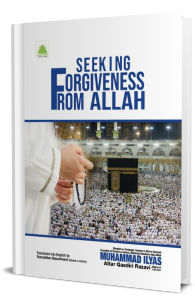
Islamic Beliefs and Knowledge
Seeking Aid from the Saints
(Part 1)
Mawlana ‘Adnan Chishti Attari Madani
From major events to minor occurrences, everything that happens in the universe does so by the permission and will of Allah Almighty. Without His decree, not even a grain of sand can move from its place. When our perfect Creator, the omnipotent Allah Almighty, is pleased with someone and showers His grace unto him, He grants him whatever favours He chooses and makes that person a vessel of blessings for others to take from.
For example, Allah Almighty gives health, but He made Prophet ʿĪsā عَـلَيْـهِ الـسَّـلَام a channel for His cure and healing to reach people:
وَ اُبْرِئُ الْاَكْمَهَ وَ الْاَبْرَصَ وَ اُحْیِ الْمَوْتٰى بِاِذْنِ اللّٰهِۚ
“And I heal him who was born blind, and the leper; and I give life to the dead with the permission of Allah.” [1]
Prophet ʿĪsā عَـلَيْـهِ الـسَّـلَام made it unequivocally clear that although he cures the sick and revives the dead, these feats are not due to an intrinsic power in him but from Allah Almighty. When the servants of Allah Almighty are a manifestation of the power of Allah Almighty, then seeking their help in difficulties, anxieties, and troubles is logically permissible.
Belief: According to the Islamic creed, if a person seeks help from the noble prophets عَـلَـيْهِمُ السَّلَام and the great saints رَحِمَهُمُ الـلّٰـهُ , considering them able to benefit or harm independently, without the permission of Allah Almighty, then this is certainly shirk. In contrast to this, if a person believes that Allah Almighty is the true helper and creator of harm and benefit but considers someone a means, i.e. a helper in the figurative sense, and seeks his help, this is completely permissible. This can never be shirk.
Note the following Quranic verse encouraging seeking help from the pious servants of Allah Almighty:
فَاِنَّ اللّٰهَ هُوَ مَوْلٰىهُ وَ جِبْرِیْلُ وَ صَالِحُ الْمُؤْمِنِیْنَۚ-وَ الْمَلٰٓىٕكَةُ بَعْدَ ذٰلِكَ ظَهِیْرٌ(۴)
“Allah is indeed his Helper, and Jibrīl and the virtuous believers; and after that the angels are also ˹his˺ supporters.”[2]
In this verse, Sayyidunā Jibrīl عَـلَيْـهِ الـسَّـلَام and the pious believers have been referred to as helpers (mawlā) and the angels are described as supporters (ẓahīr). From this, it is as clear as day that the pious servants of Allah Almighty are helpers. When they are helpers, seeking help from them is also permitted.
At another place, Allah Almighty commands seeking help from other than Allah Almighty in the following manner:
وَ اسْتَعِیْنُوْا بِالصَّبْرِ وَ الصَّلٰوةِؕ
“Seek help from patience and salah.”[3]
Commenting on this verse, the seasoned theologian, Imam Ahmad Raza Khan رَحْمَةُ الـلّٰـهِ عَلَيْه , states:
Is patience a creator that the command of seeking help has been mentioned regarding it? Is prayer a creator that the command of seeking aid has been stated concerning it? In another verse Allah Almighty states:
وَ تَعَاوَنُوْا عَلَى الْبِرِّ وَ التَّقْوٰى ۪
"Help one another in righteousness and piety.”[4]
If taking aid from other than Allah Almighty is absolutely impossible, what is the meaning of this divine command? If it is possible, then what grave peril is there in seeking help from the one from whom help can be attained? Innumerable hadith encourage us to seek help ˹from other than Allah˺, such as worship in the morning, worship in the evening, worship in the last portion of the night, writing down knowledge, the pre-dawn meal, midday naps, and hiding one’s needs in order to have them fulfilled.[5]
Those hadith include the following reports:
1. Our beloved Prophet صَلَّى الـلّٰـهُ عَلَيْهِ وَاٰلِهٖ وَسَلَّم said
اِذَا نَفَرَتْ دَابَّةُ اَحَدِكُمْ، اَوْ بَعِيرُهٗ بِفَلاةٍ مِنَ الاَرْضِ لاَ يَرَى بِهَا اَحَدًا فَلْيَقُلْ اَعِينُوا عِبَادَ اللهِ
“When your animal or camel flees in a uninhabited land where no one is visible, say, ‘Dear servants of Allah, help me,’ for indeed he will be assisted.”[6]
2. Sayyidunā ʿAbd Allah b. ʿAbbās رَضِیَ الـلّٰـهُ عَنْهُمَا states:
اِنَّ لِلَّهِ مَلَائِكَةً فَضْلًا سِوَى الْحَفَظَةِ يَكْتُبُونَ مَا یَسْقُطُ مِنْ وَرَقِ الشَّجَرِ، فَاِذَا اَصَابَتْ اَحَدَكُمْ عَرْجَةٌ فِي سَفَرٍ فَلِيُنَادِ اَعِينُوا عِبَادَ اللَّهِ رَحِمَكُمُ اللَّه
“Indeed Allah has angels apart from the Recording Angels, who record whatever leaves fall to the ground. So if any of you is crippled on a journey, let him call out, ‘Help me, O servants of Allah, may Allah have mercy on you.’”[7]
3. Another hadith states:
اُطْلُبُوا الحَوائِجَ اِلَى ذَوِي الرَّحْمَةِ مِنْ اُمَّتِي تُرْزَقوا وتُنْجَحُوا
“Seek needs from the people of mercy from my Ummah; you will be given provision and you will attain your needs.“[8]
4. While in one hadith, we are encouraged thus:
اُطْلُبُواالْخَيْرَ وَالْحَوَائِجَ مِنْ حِسَانِ الْوُجُوهِ
“Seek goodness and needs from those with beautiful countenances.”[9]
[1] [Kanz-ul-Iman (translation of Quran)] (Part 3, Surah Aal-Imran, verse 49)
[2] [Kanz-ul-Iman (translation of Quran)] (Part 28, Surah Al-Tahreem, verse 4)
[3] [Kanz-ul-Iman (translation of Quran)] (Part 1, Surah Al-Baqarah, verse 45)
[4] [Kanz-ul-Iman (translation of Quran)] (Part 5, Surah Al-Maa’idah, verse 2)
[5] Fatāwā Razawiyyah, vol. 21, p. 305
[6] Musannaf Ibn Abi Shaybah, vol. 15, p. 384, Hadith 30438
[7] Musannaf Ibn Abi Shaybah, vol. 15, p. 345, Hadith 30339
[8] Al-Jāmi’ al-Ṣaghīr, p. 72, Hadith 1106
[9] Al-Mu’jam al-Kabīr, vol. 11, p. 67, Hadith 11110












Comments